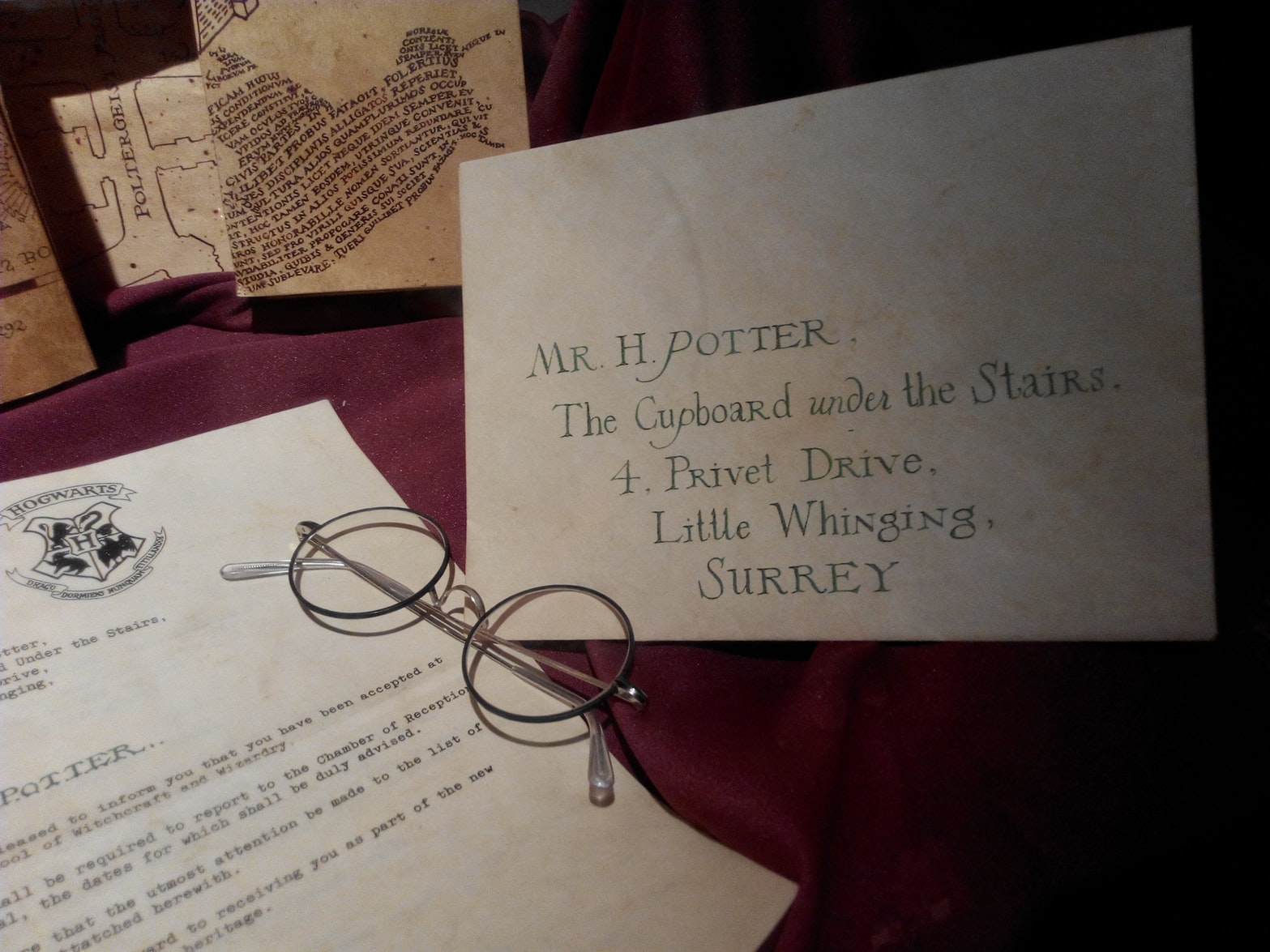
Want to Write More Believable Characters? Make ‘em Quirky
Strong characters are the foundation of any great novel.
There are many ways to make your characters seem more real and more human.
In our character development resources, we offer a detailed process for building characters from the inside out, starting with a nugget of a personality, then layering it with detail. We advise looking at your characters’ personality type and motivations, their voice and their backstory.
But even once you’ve built a solid, three dimensional character, with hopes, dreams and flaws, you might still feel there’s more that can be done to really bring them to life—and you could be right.
If you want to write truly believable, memorable characters you have to dive deeper into the little things; like giving your characters quirks.
Although it seems like quirks should be straightforward, they are often misunderstood. It’s wise to make sure that you’re using them correctly while avoiding the common mistakes.
A strong quirk can make your main characters immediately recognizable and forever remembered.
But poorly-used quirks can bore your readers or even turn them off.
Are you ready to get quirky? Read on!
What Are Character Quirks?
There’s a lot of confusion out there around quirks, so let’s start by getting clear on our definition.
Quirks are peculiar, surprising, unusual, defining, and/or memorable character idiosyncrasies. They stand out and make your characters unique. Quirks are often minor things your character has no conscious control over.
Unique is the real key here. A true quirk should cement the character in your readers’ minds so they associate that quirk with that character and that character only.
Dictionary.com defines quirks as distinguishing characteristics or qualities, especially of one’s personal nature.
But in novels, they are no random coincidences (not when done by the masters, anyway).
In fact, they are often physical features or behavioral manifestations of something central to the story: a broader personality trait, an unusual gift or talent, or perhaps an irrational fear or a rare strength or weakness.
Here are some examples:

- Harry Potter’s lightning scar was an outward sign that he was the only person to ever survive the Avada Kedavra curse. As time went on, it became a window into Voldemort’s thoughts as well, a key part of the story line.
- Darth Vader’s helmet and signature breathing is another, as it’s a constant reminder to himself and others of his battle with Obi-Wan Kenobi and his subsequent transformation into half-machine in order to survive.
- Anne of Green Gables’ insistence that she is “Anne with an ‘e,’” is also a quirk, one that helps her distinguish herself from the “formula Ann” orphan stories of the time.
What Quirks Are Not
When it comes to recognizing or choosing quirks for your characters, it’s equally important to know what isn’t a quirk.
Quirks are not skills, knowledge, or specialties attained by study.
As an example: Even though some might think otherwise, Katniss’s hunting skills are not a “quirk.” They are an essential part of who she is as a person, an expertise and a set of skills she has deliberately acquired and honed.
Also, while her skills are exceptional, they are in no way unique. There are hundreds, probably thousands, of people who can shoot a bow as well as Katniss.
A quirk should be something that’s completely or almost completely unique to that person, and it will often have a taste of oddness to it.
Why You Should Give Your Characters Quirky Personality Traits
There are many great reasons to consider giving the gift of a quirk to at least one of your main characters. A well-applied quirk:
- Makes your characters seem more real.
- Makes your readers care about them more.
- Makes your characters more relatable—for better or worse, they’ll be more endearing, charming, attractive, repulsive, unlikable, or annoying.
- Makes your characters more memorable.
At their best, quirks are handy literary devices that can act as windows that let readers see inside your characters’ lives, foreshadowing more of what your characters could be.
5 Best Practices for Giving Your Characters Quirky Personality Traits
Here are a few tips for the best ways to incorporate character quirks:
- Draw your inspiration from real life, TV, or movies. Get in the habit of watching people and making notes. Don’t copy quirks exactly from other characters but use the ideas to riff off and come up with your own.
- Sprinkle quirks sparingly throughout your story. There’s no need to go overboard by overusing, exaggerating or over-describing them. Your quirks also don’t have to be so “out there” that they’re unbelievable. Not every main character needs one. A single character could have more than one quirk, but no single character needs more than one. Most writers who use quirks don’t need to worry about not being quirky enough. The bigger danger is crossing over the line into the unbelievable.
- Make quirks significant to the story and not incidental. Harry’s scar and Darth Vader’s helmet become more important to their respective stories as time goes on and as more backstory is revealed.
- Beware of and avoid cliches or quirks that are overused. Instead, try to mix things up and be original (see below for examples.)
- Don’t let your characters be slaves to their quirks. Instead, let your characters break role occasionally; it will make them more believable. For example, near the end of your story, your hero might decide he can skip his habitual quadruple-checking of every lock on the house in order to catch the train that will allow him to propose to his love interest before she leaves town forever.
100 Quirks to Make Your Characters More Believable

Use this list of character quirks for inspiration. You can use these exact quirks, or better yet, come up with your own based on these suggestions.
Personality Quirks
- Can’t walk past a homeless person without giving them something, and has given away all their jewellery in this way
- Instead of giving a straight answer to a question, takes glasses off and cleans them, then answers a different question
- Doesn’t allow others to get a word in edgewise, instead talking over them and quoting ancient philosophers as if they thought of it themselves
- Hurls thoughtless, unprovoked insults that sound like something a pirate would say
- Overly meticulous about organizing books, papers, or files to the point that even the paperclips are colour coordinated
- Asks many probing questions to determine someone’s motives, to the point people give up trying to deal with them
- Loves to tell strangers their life story, unprompted, immediately upon meeting them
- Defends friends fiercely, to the point of physical confrontation, even if they’re in the wrong
- Unerring attention and memory for numbers like phone numbers, addresses, birthdays, or times and dates.
- Complains constantly about how unfair life is and how good their ex has it
- Believes they are an expert on every topic, and makes it well known by constantly interrupting actual speakers
- Addicted to approval, constantly seeking compliments even on the simplest aspects of their work
- Hates parties so much they always set a timer for 30 minutes as soon as they arrive and leave the instant it goes off, even if someone is halfway through telling them something.
- Has a mirror set into their wristwatch which they are constantly checking their appearance in
- Constantly asks, ‘Aren’t you cold?’ even in the middle of summer, while dressed in layers of sweaters
- Competitive to the point of overturning tables when losing at card or board games, pouting when losing and raging when they suspect others of cheating
- Surround themselves with beauty—flowers, art, and nature—always wearing artsy scarves and flowers
- Conspiracy theorist who doesn’t trust doctors and believes aliens are behind most medical advancements
- Works behind the scenes in workplace conflicts to build consensus and make peace, but never wants to be discovered doing so
- Loses money because they are overly trusting of unethical marketers — has a house full of junk as a result
- Is a kind listener who attracts emotional vampires that call at all hours of the day or night for advice they never take
- Refuses to quit or admit defeat in sports competitions, even though they don’t have the abilities they used to
- Ignores parking signs and is always getting towed or fined
- Annoyingly, always finds a silver lining when friends are injured or ill.
- Undermines people they don’t like by spreading rumors that they’re cruel to animals.
Mannerisms and Abilities
- Laugh sounds like a donkey
- Speaks very quickly so they must constantly repeat themselves
- Speaks excruciatingly slowly so listeners tune out and walk away
- Snorts like a hippo when excited
- Always uses their outside voice
- Never speaks clearly, mumbles
- Has a surprisingly high-pitched voice
- Has a speech impediment but sings beautifully
- Rubs their nose frequently when nervous
- Unplugs all electric devices before leaving the house
- Hides behind a curtain of long hair but notices everything
- Likes to speak in code or abbreviations that no one else understands
- Hums sea shanties tunelessly when engrossed in work
- Whistles The Imperial March cheerfully while walking
- Gestures with hands fluttering like castanets when excited, even knocking things over
- Always lopsided, leaning several degrees to the left
- Has closed body language that betrays the words they speak
- Looks up at the sky when lying or avoiding revealing the truth
- Math wizard, can do any calculations in their head
- Can perfectly manipulate 3D objects in their mind
- Can compose full-length articles or letters in their mind
- Composes music in their mind
- Has a real-world superpower of always being able to tell when someone’s lying.
- Constantly distracted, walking away and leaving conversations half-finished
- Mirrors conversations, always repeating back what someone else has said
Physical Quirks
- Excellent or weak hearing, eyesight or other sense, perhaps balanced out by another, stronger sense
- Unusual natural eye color, colored contact lenses, or tinted glasses
- Never washes hair, allows natural oils to come through, so it looks good but feels greasy
- Always perfectly groomed, down to every last hair being ordered, every shoes, handbag and item of jewellery perfectly coordinated.
- Wears a different wig every day of the week
- Only wears turquoise
- Has a different hairstyle every day
- Has a tattoo of a rainbow cat on their left thigh
- Dresses for the wrong decade
- Carries a large bag everywhere that’s stuffed with things for any emergency
- Drives a big black van with skulls and kittens painted in rainbow colours on the sides, and sparklers sticking out the top
- Has a scar from being shot in the head and living through it
- Has a gold front tooth with a ruby embedded in it
- Uses an unnecessary walking stick
- Dresses their tortoise in a suit and tie and brings them everywhere in a special leather bag
- Altered themselves in some way to look better/different, perhaps plastic surgery
- Half blind but refuses to wear glasses, so always squinting and not recognising people
- Hairy buttocks
- Has sweaty palms even when they’re not nervous
- Adds freckles to their cheeks, always in different places, because they think it makes them look more attractive
- Classically beautiful or handsome so they’re always compared to a certain celebrity
- Is a poster child for “cute” but hates the word
- Never wears dress clothes, even at formal occasions – wore ripped jeans to a wedding
- Wears too much jewelry, perfume, or a signature piece of jewelry
- Stress makes them break out in a rash or hives
Behavior Quirks
- Has an overpowering handshake
- Is a germ-phobic elbow bumper
- Uses certain words or phrases frequently, like “all right, then?” or “fiddlesticks.”
- Constantly quotes obscure movies, TV dialog, certain comedians, or song lyrics
- Pounds on desks or tables to make even the most minor point
- Constantly avoids confrontation by apologizing, even if it’s not their fault
- The ultimate networker who knows everyone and makes introductions at every social gathering, even when it’s awkward
- Has an unusual or illegal pet
- Terrified of all animals
- Is an animal whisperer, calming any creature
- Literally runs from any physical fight or shouting match
- A prankster who doesn’t know when to stop joking around
- Shifts weight from foot to foot when the center of attention
- Falls asleep in the middle of conversations (narcolepsy)
- Forgets complete conversations they’ve had while sleepwalking
- Makes up annoying nicknames for people
- Drums constantly, hitting anything with their hands, cooking implements, pens, pencils, etc.
- Talks to themselves even while others are present
- Is a kleptomaniac but only steals food
- Paces holes in the carpet while thinking
- Uses a flirty wink at inappropriate times
- As a host, constantly offers guests their latest original recipe for food or drink
- Always rattling their pocket change
- Will get somewhere 10 minutes early and then wait outside to arrive exactly on time
- Turns everything they say into a question
Avoid Turning Vague Cliches Into Weak Character Quirks
So what’s an overused or weak quirk? Aside from the fact that they’re too general, they’re overly simplistic, used too frequently, often based on stereotypes, and don’t allow readers to know your characters well enough so they ring true.
If you can think of more than a few instances of a particular quirk in popular stories, it’s probably overused (and it’s best to avoid it.)
Some of these may also be genre specific, for example:
- In romance, violet eyes
- In fantasy, the completely unique birthmark, often shaped like a real object or a symbolic image, which shows the princess/hero/protagonist is the Chosen One.
Other possibilities:
- Adorable kids with a lisp
- Manic pixie dream girls
- Autistic characters who are idiot savants
- Smart girls with mousy appearances, wearing glasses
- Shy person who hides behind stacks of books
- Mad scientists with messy hair and crazy facial expressions
- Disorganized, absent-minded professors
- Evil antagonists with long, dirty fingernails or greasy, unkempt hair
- Grumpy, grouchy angry old men
- Gorgeous but brooding, despondent men
- Women who love chocolate
- Air-headed blonde women
- The dashing, physically perfect hero
- The plain, unconfident Jane
- The princess needing to be saved
- The high school hunk
- Sarcastic teen girl who saves the world in the end
Bring Your Characters to Life with Quirks
Now that you’ve got a better idea of what character quirks are and how to use them, you can return to this list of quirks to flesh out your characters—as well as to recognize the quirks you might already be using without realizing it.
Next, challenge yourself to continually add to your own list of quirks. Sit down and brainstorm or just get into a habit of watching people and making notes of the inspiration that’s all around you.
Commit to paying attention and being more aware of the quirks you see in real life and in your favorite stories.
Like so much in writing, creating strong, memorable characters is an ongoing process. When you start being more deliberate and noticing quirks in the wild, you’ll become a better storyteller.
Then make sure you’ve completed the Ultimate Character Questionnaire for all your main characters.
Your characters, and your readers, will thank you.
Unlock your writing potential
If you liked this article by the Novel Factory, then why not try the Novel Factory app for writers?
It includes:
- Plot Templates
- Character Questionnaires
- Writing Guides
- Drag & Drop Plotting Tools
- World Building resources
- Much, much more

